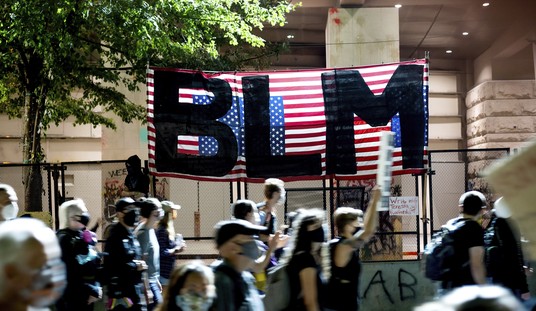In Virginia, Attorney General Ken Cuccinelli is exploring the limits of when preaching crosses over the line into politics. It requires a bit of digging into state law, but the line he identifies looks fairly clearly, at least at first glance.
Attorney General Ken Cuccinelli spoke to the approximately 250 church leaders on Thursday, outlining for them what they are allowed to do when it comes to political engagement.
A personal endorsement of a candidate is permissible under the law, he said at the Virginia Christian Alliance’s “Christian Citizenship and Godly Government Breakfast.” But they cannot use their church to endorse anyone.
“The biggest no-no of them all, do not put your church’s name behind any candidate,” he made clear as he pointed out that churches that endorse candidates could lose their 501(c)3 tax exempt status.
If we stopped there, it sounds like the AG is pulling out the separation of church and state argument with guns blazing. However, he goes on to put a few more qualifiers on this which come close to the exact opposite.
Churches may also distribute voter guides explaining the issue positions of candidates, as long as those guides do not also contain the positions of the church on those issues.
Cuccinelli assured the pastors, though, that speaking out on political issues is not only legal, but appropriate.
“When you became a pastor, you didn’t leave your First Amendment rights at the door,” he clarified. “Continue to be good shepherds to your congregations – and don’t be afraid when your shepherding includes giving guidance on issues that fall in the political world, because those are the same issues your congregants face each day in their world. Let your voice be heard. Speak out and guide your flock toward what is right and what is true.”
You’ll pardon me for observing that the Attorney General, speaking in his official capacity, isn’t sounding particularly secular there. But in any event, he’s not exactly breaking new ground. This is one of the biggest gray areas in the country when it comes to the intersection of politics and faith.
On the one hand, it’s not difficult to imagine that when your pastor hands out an “issues guide” reinforcing the church’s position on each item, it doesn’t exactly require a double major in theology and political science to put two and two together and figure out which candidate is which. But does that cross the line in terms of non-profits – including churches – staying out of elections?
That depends which state you’re in. Without re-writing a single law, one state could choose to bring the hammer down when the leader of the congregation so much as mentions the word abortion. Across the state line, the next governor could have policies allowing priests to do anything, providing their not actually handing out “Vote for Bob” bumper stickers along with the communion wafers.
The real question to be wrestled to the ground here is, when is influence undue and when is it appropriate? On the one hand, the entire purpose of structured religion is, in part, to influence your behavior. (At least as far as influencing you to lead a moral life.) Surely the way you vote is part of how you interact with the rest of the world and conduct your affairs.
But contrarians will note that religious leaders carry influence beyond what any single adviser or guide could wield, since they implicitly carry the fate of your eternal soul in their hands. Should that level of what is literally “the fear of god” influence be brought to bear on voters’ decisions? This will raise the usual hackles on both sides of the debate, but don’t expect any clarification from on high any time soon. In fact, it will continue to swirl as events like the Texas “Day of Prayer” make the news.







Join the conversation as a VIP Member